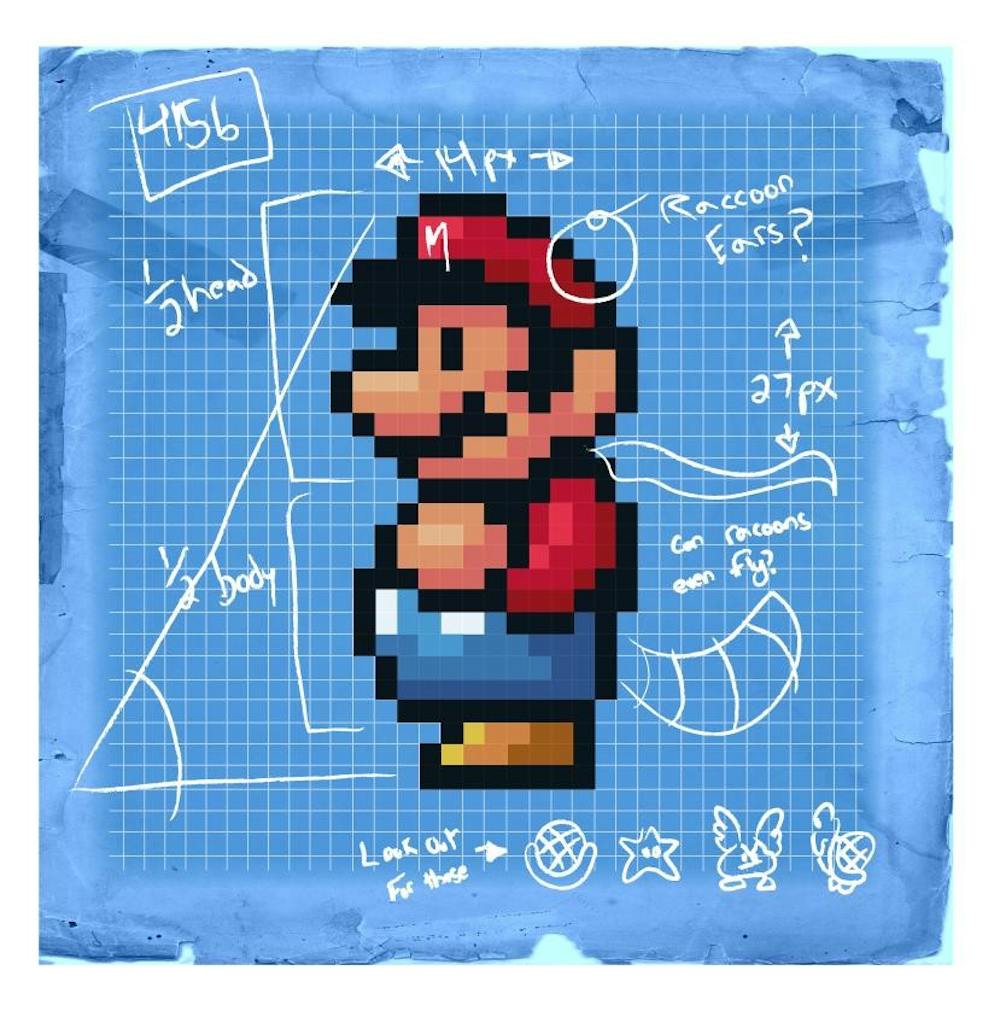In the world of gaming, life’s not just about how people navigate through realms unknown, but how they create their own experience.
At least, that’s where the gaming industry is headed. Some even get there from Hollywood, like Lee Sheldon, an assistant professor who teaches classes on the subject in the telecommunications department.
He spent his formative years writing TV pilots until landing a job by happenstance in British Columbia at a now-defunct game design company called Sanctuary. The first game he ever played, “Space Invaders” on the Atari 2600 console, inspired him to think of new ways to tell stories.
The game design program at IU enables undergraduate students in telecommunications to invent alternative realities through a selection of classes that focus on application, Sheldon said. Students also have the option to craft multi-player or niche games through IU’s Individualized Major Program.
Sheldon’s approach to teaching actually works more like a game.
“I tell students in the beginning that they all have F’s,” he said. “Then they can ‘level-up’ if they do all the things gamers do. The class is a like a game in which everyone competes, complete with gaming terminology.”
In response to the explosion of new media being integrated with gaming, such as Facebook games like “FarmVille,” student teams in Sheldon’s class have come up with game themes that range from Japanese mythology to a football tailgating-friendly board game on the underside of a cooler lid.
“It’s good to demonstrate to them that games aren’t just about guys in big metal suits carrying guns,” Sheldon said of his students’ ability to think outside the box.
But another type of gaming that people tend to think less about with the explosion of video games involves sitting around another type of box.
IU alumnus Tim Ebert works as a store clerk at the Game Preserve downtown on the square. The store specializes in non-electronic games and still pulls in large crowds for weekly “Pokemon” nights and “Risk” tournaments.
Ebert said whether one is playing a family-oriented game such as “Scrabble,” or a strategy game such as “The Settlers of Catan,” it’s important to know that a proactive decision-making process is always involved.
“Something like ‘Halo’ may just involve shooting things properly,” Ebert said. “Other games make you apply the creativity and adaptitivity you learn in the world when you play them.”
Alternate forms of gaming are not just about what people do when it’s time for them to roll the dice.
“The purpose of games is to tell a story,” Ebert said. “In chess, there is a narrative at work. Essentially, you’re setting up traps for a checkmate to your opponent.”
For Ebert, the ability to think critically while gaming has even influenced his performance on standardized tests. He thinks playing certain games are a fun way to “teach kids arithmetic when they otherwise wouldn’t want to bother learning it.”
“I took a test in sixth grade,” he said. “There were words that appeared on the test that I wouldn’t have even known if it weren’t for me seeing them on a deck of ‘Magic: The Gathering’ cards.”
Games of skill

Get stories like this in your inbox
Subscribe





